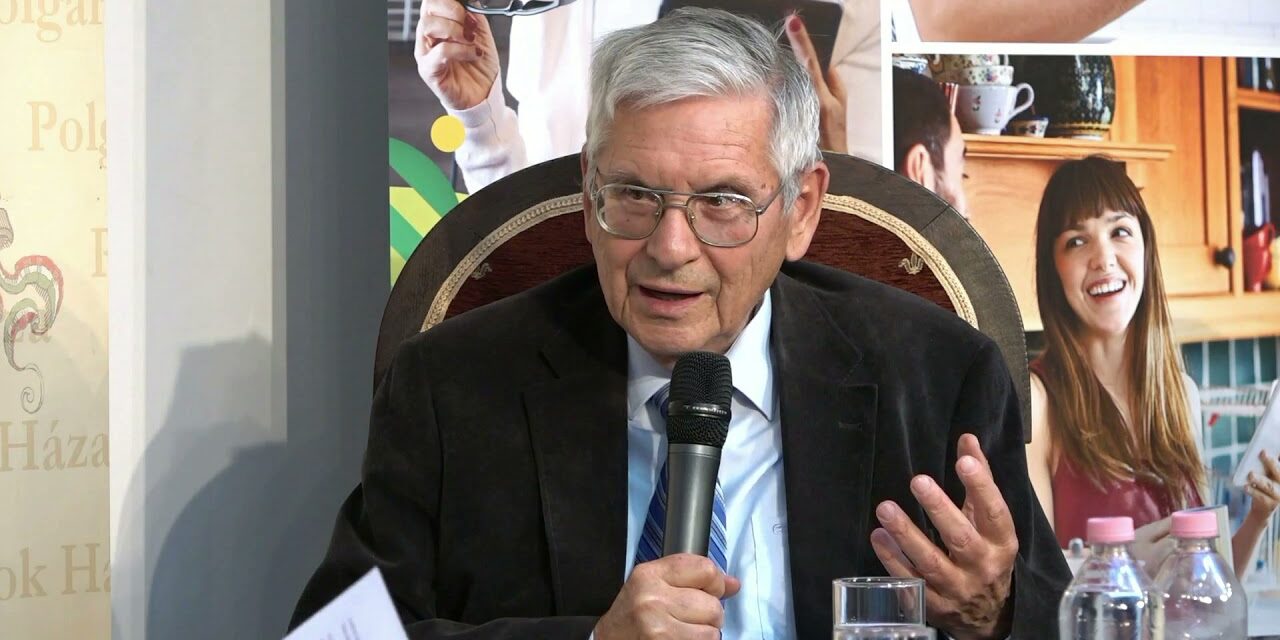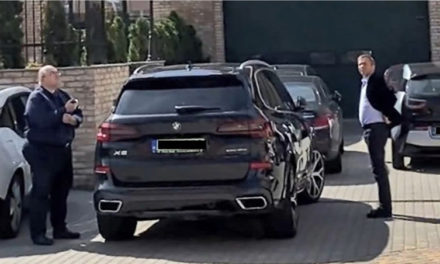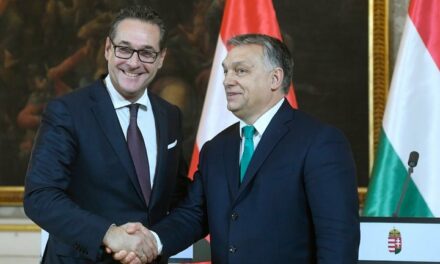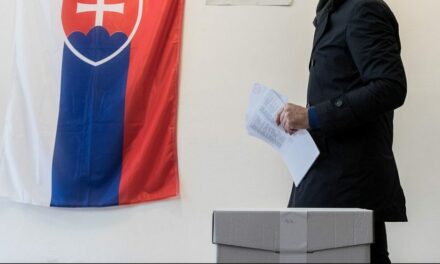They are not elected politicians who can possibly be held to account, but mouthpieces of institutions that are immovable as capitalist private property and shape politicians' opinions without taking responsibility for the consequences.
In recent days, a new debate has unfolded in the American foreign policy magazine Foreign Affairs about possible ways to end the Russian-Ukrainian war. The opening article came from Samuel Charp, an analyst at the RAND Corporation, who essentially argued that neither side could win outright, so it was time for the United States to come up with a vision of how to end the war.
According to Charp, there is a high probability that the war will end without resolving the territorial dispute, with the acceptance of a cease-fire line, similar to the 1953 Korean armistice. In such a solution, Ukraine will need certain security guarantees.
Charp rejects Ukraine's NATO membership because it would be unacceptable from Moscow's point of view, and it is not even certain that all NATO members would agree with it.
At the same time, Ukraine must be given security guarantees in the event of an attack by Russia. Here, Charp raises the possibility of guarantees such as the ones Israel received in return for the peace treaty with Egypt.
In order for Ukraine to accept such a compromise, which is far from its goals, incentives are needed. Examples of incentives include reconstruction aid, measures to hold Russia accountable, and sustained peacetime military assistance. Similarly, the United States and its allies should encourage Russia to accept the solution. In order to do this, political pressure must be supplemented with measures that make the agreement attractive, such as the conditional easing of sanctions. Finally, Charp suggests that
the United States should appoint a presidential envoy to negotiate informally with each party on these issues.
With this article, the expert of the RAND Corporation, which is close to the American government and the Pentagon, actually outlined America's exit strategy, which would probably suit most Republican and Democratic politicians in America, but at the same time, the reactions to the article show fierce opposition from certain circles.
Dmytro Nataluka, a member of the Ukrainian parliament and a representative of the Servant of the People party, founded in 2017, advocating European integration, rejected the RAND expert's proposed solution.
He believes, and this is also the perception of the Ukrainian leadership, that if they get enough weapons, they will defeat Russia. Nataluka, as a member of the Ukrainian parliament, could of course have done nothing but reject the compromise proposed by Charp, so the reaction of Alina Polyakova and Daniel Fried, who are "independent" from this point of view, may be more interesting than his opinion.
Alina Polyakova is the director of the Center for European Policy Analysis, a research institute. She was born in Kiev and emigrated from there with her parents in 1991. After graduating from university, she is the head of several prestigious research institutes and a regular author for The Washington Post, The New York Times, For The Wall Street Journal, Foreign Affairs and The Atlantic. The institute itself, which he leads, is supported by many foundations and large corporations, including Microsoft, Mercedes-Benz and NATO's Department of Public Diplomacy. His co-author, Daniel Fried, is a diplomat working in the field of foreign policy, he was the head of the ministry responsible for European and Asian affairs during the Bush administration, and he coordinated the sanctions policy during the Obama presidency.
The two authors argue that Charp misunderstands the Russian-Ukrainian war and offers dangerous advice that, if heeded, would leave Washington and its allies in a much more vulnerable position not only against Russia, but also against China. Ukraine should be admitted to NATO, but since it takes time, strengthened security agreements between key NATO members and Ukraine should be concluded in the meantime.
According to the authors, Ukraine has not yet shown what it is capable of, because it has not received the necessary weapons from the West, which must be delivered to it as soon as possible.
Angela Stent, a British-born American foreign policy expert and senior advisor at the Center for Russian and East European Studies, takes a similar position. According to him, Putin's war goals have not changed, among them the conquest of the whole of Ukraine, the overthrow of its government, the elimination of Ukrainian statehood and nationality, and ensuring Russia's perpetual rule over the country. Although Putin was unable to capture Kiev in three days, there is no indication that he has given up on this goal. As long as Putin remains in power, Russia's aspirations in Ukraine will not change. The United States and its allies must take seriously Putin's words about the "denazification" and demilitarization of Ukraine. Putin will continue his aggression against Ukraine until he is stopped on the battlefield.
Gideon Rose, former editor of Foreign Affairs and member of the Council on Foreign Relations, also advocates continued military support. According to him, the United States and Europe should increase the support provided to Ukraine: more armor, artillery and ammunition, better air defense, and fourth-generation fighter jets should be sent as long as necessary. This course is not only the right thing to do, but the best way to end the war because it allows Ukraine to gain a position that it can defend indefinitely, with continued assistance.
As can be seen from the listed positions, there are five who advocate the continuation of the war in the hope of victory, with an opinion ready for compromise, which roughly expresses the current political balance of power in the Euro-Atlantic region.
In the writings of each author, named or inferred, the cause of the war is Putin's imperial ambition, the conflict began on February 24, 2022, when Putin attacked Ukraine without any reason. This is now the Western narrative about war.
I tried to present the background of the article writers because I wanted to show how the opinions are related to training, funding, integration into the political structure and information (media).
We see a complete opinion-determining system that "manufactures" the narrative for the wider public, i.e. the background for the interpretation of events, which only publicizes the opinion of a privileged political group, while opposing opinions - for example, Russian radio and TV broadcasts - are banned from the from a communication space.
What is missing from the narratives presented by Foreign Affairs and other mainstream media?
Above all, there is no mention of the real cause of the war, NATO's eastern expansion, which the West is continuing despite the promise it made to Gorbachev at the time ("not even an inch"). We miss the fact that two-thirds of the population of Ukraine did not want to be a member of NATO, and we miss how the Ukrainian president, Yanukovych, who wanted to maintain friendly relations with Moscow, was disturbed.
We do not know who fired into the protesters in February 2014 to create panic and overthrow the democratically elected government. What is missing is who and how they took power in Kiev with the active participation of Viktoria Nuland and other American politicians. And, of course, what role some Ukrainian politicians and parties played in the process, especially the nationalist extreme right, is also missing.
The preponderance of radical opinions is also due to the fact that the main opinion makers are not risk bearers.
For example, they are not elected politicians who can possibly be held accountable for their political activities, but they are the mouthpieces of institutions that are unshakable as capitalist private property. They are the ones who shape the opinions of politicians elected by any party without taking responsibility for the consequences.
These opinion makers do not represent American, or especially not European, interests.
But while the war in Ukraine is of marginal importance to America, and perhaps even has some benefit from it, for Europe this provoked Russian-Ukrainian conflict has catastrophic economic and social effects.
In order to protect our own interests and steer events in a more peaceful direction, we must think about how the real drivers of the war could be made known to the Western European public, breaking through the phalanster of the mainstream media and the institutional system behind it.
Károly Lóránt is an economist and advisor to the National Forum
Featured image: Civils.Info













